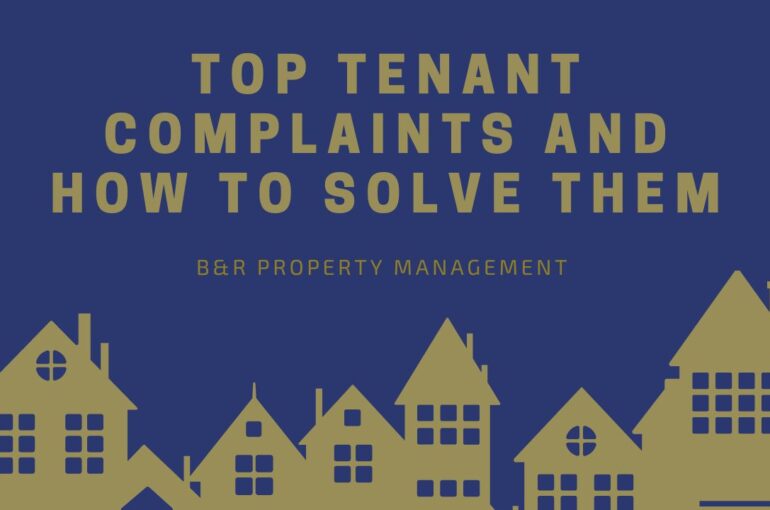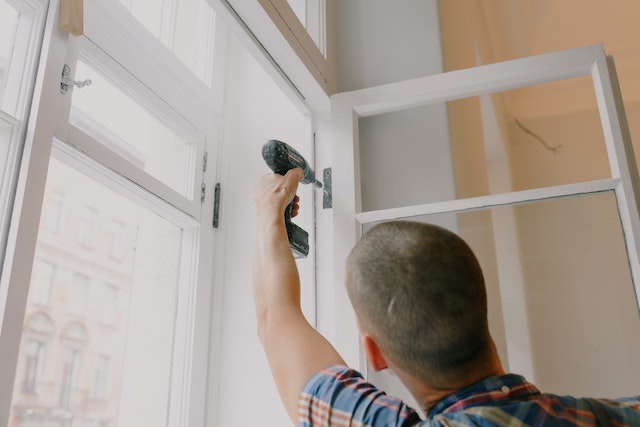Top Tenant Complaints and How to Solve Them
Top Tenant Complaints and How to Solve Them

A big part of being a landlord involves interacting with other people and facing the occasional tenant complaint. It’s important to be prepared for such instances. Planning ahead will help you find the best resolution and lower your stress in the long run.
The ability to adequately address complaints will help you attract and retain long-term tenants. It’ll help build trust and make residents feel more comfortable staying in their apartment.
Read ahead to learn about the common complaints landlords are likely to encounter. We’ll provide useful tips to minimize tenant complaints and explain how to resolve each issue.
Tips to Reduce Tenant Complaints
Be Available
If an issue arises, a tenant may want to reach out to their landlord, be it for assistance or advice. To avoid miscommunication, you should remain accessible to them, especially during normal business hours.
If a renter calls or messages you, make sure to respond as soon as you can. If you’re on an important errand, you can let the resident know you’re occupied and that you’ll get back to them when you’re done with your current task. You can even schedule a call or give the renter an approximate time of when you’ll be available so they know when to expect your reply.
Strengthen Your Listening Skills

When tenants bring concerns to you, make sure to offer a patient and listening ear. If a tenant is opening up to you, it means the issue is bothering them. Take time to consider their feelings, see things from their perspective, and be empathetic.
Paying attention helps strengthen landlord-tenant relationships, and a renter who feels heard is more likely to renew their lease when the time comes.
Store Rental Documents Properly
Make note of any complaints you receive. Keep those records safe and organized, along with any supporting documentation, such as pictures or receipts. Don’t throw anything away. Keeping a timeline of events and a record of what succeeded will be useful in case the issue ever escalates or resurfaces.
Pest Infestation Concerns
Unfortunately, owning a property comes with the risk of pest infestations. If a renter ever complains about a pest infestation, don’t wait. Fix the issue right away to avoid tenant turnover. A vacant rental can be costly, so it’s best to book a pest extermination service to avoid losing a renter.
Familiarize yourself with reliable exterminators in the area. Schedule their services periodically to thoroughly eliminate the pests in your rental. You might want to book a package service, as pests could move to neighboring apartments. Preventive maintenance is recommended.
Once an extermination date has been settled, inform the renters so they can plan their activities accordingly.
Property Maintenance Issues

Landlords may also encounter maintenance-related issues. It’s normal for apartments to change after continued use and experience damages due to normal wear and tear. It’s a landlord’s responsibility to fix those kinds of damages.
If a tenant approaches you with a property maintenance request, avoid delaying the repairs and conduct a property inspection to find the cause. You may also employ a professional contractor to perform the inspection on your behalf.
Once action has been taken, let the tenant know, and continue to provide updates on how the issue is being addressed. After the repair has been completed, verify with the resident that the problem hasn’t persisted. It’ll help you prevent further complications and show them you’re attentive to their needs and comfort.
Managing Noise Complaints
If you receive a noise complaint about one of your renters, you can remind them that the lease expressly states noise levels should be kept at a minimum and that they may be in violation of city codes. If the resident(s) does not heed notice, even after repeated verbal and written warnings, you may consider an eviction as a final solution.
However, if the noise complaint is about someone you don’t rent to, you can advise your tenant to talk with their neighbor to settle the situation. If nothing happens, you may consider calling in a noise complaint to local law enforcement officers.
Addressing Pet Issues

Being a pet-friendly rental means you’ll likely encounter a handful of pet complaints. These can range from pets with behavior issues to the unhygienic practices of pet owners. If you receive a pet complaint, issue a notice to the owner right away so they may fix the issue. If nothing changes, you may consider evicting the tenant as a last resort.
Evicting a tenant that doesn’t exercise responsibility over their pet(s) might be a better option than risk losing other good tenants. This is especially true when the animal is aggressive, as it poses a huge liability. You may also be able to call city officials for assistance.
Bottom Line
It’s important for landlords to prepare for potential tenant complaints. To avoid complications, make time to listen to tenants, remain accessible, and don’t forget to document the complaints. When you know how to address tenant complaints, you may improve your relationship with your renters and encourage their long-term occupancy.
If you prefer a hands-off approach, you can contact a trusted property management company, such as B&R Property Management, to perform these services.



